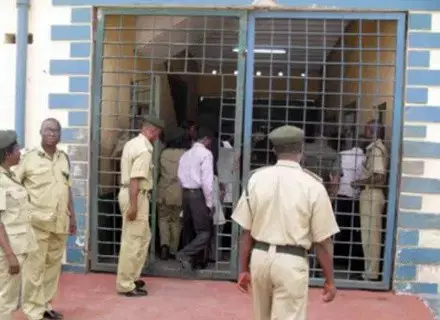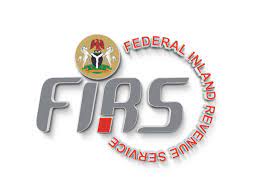COVER
Tenancy Stamp Duty, ‘New Normal’ to Boost Revenue-FIRS.

By Mathew Dadiya, Abuja
The Federal Inland Revenue Service (FIRS) has said that Nigerians should accept the fact that the country can no longer rely solely on revenue accruing from its natural resources to fund the budget, hence the need to embrace taxation as the new normal of national fiscal policy.
The tax agency insisted at the weekend that its newly introduced six per cent stamp duty on tenancy had come to stay despite criticisms from from some quarters.
At the weekend also a number of tax experts and Economics called for suspension of the new policy as they queried and the legality and timing of the new policy.
Director of Communications Liaison, FIRS, Mr Abdullahi Ismaila Ahmad who spoke to DAILY ASSET on the new directive to tenants and landlords for the payment of the 6 percent stamp duty on rent, clarified that the stamp duty was levied on the instrument of transaction and not on the payment itself.
He explained that the 6% stamp duty was for tenancy above 21 years while 7 to 21 years lease or tenancy attracts 3% and less than 7-year tenancy is below 1%.
Reacting to the development, renowned Professor of Economics, Ken Ife argued that the Finance Act 2020 excludes persons whose turnover is less than N25 million from filing returns or paying tax. This according to him, means that the Landlord cannot collect such stamp duty rate from the tenant and cannot remit any such tax to the FIRS.
He urged the Federal Government to prevail on the FIRS to rescind its decision on the implementation of the tenancy stamp duty charge due to the impact of COVID-19 on the citizens and economy in general.
But the FIRS Communications chief, said that panelists and discussants on a webinar organized by a firm, OTISVIP, and which had in conversation, the Executive Chairman, Federal Inland Revenue Service (FIRS), Mr. Muhammad Nami, made the submission at the weekend that the stamp duty is a new normal which Nigerians must accept.
According to him, the theme of the well-attended webinar was “Stamp Duty: The New Black Gold?” and it was hosted by Mr. Jake Effoduh, a Partner at Praxis & Gnosis Law. Panelists on the online discussion were Dr. Alexander Ezenagu, an assistant professor of taxation at HBKU, Qatar; Managing Partner, Sprout Digital, Mrs. Damilola Anwo-Ade; Director, VoguePay, Malam Mohammed Jega; Managing Director, Trace Anglophone West Africa, Mr. Sam Onyemelukwe; Founder, The Alpha Reach, Mr. J.J.Omojuwa; and Director, Tax Policy, FIRS, Mr. Mathew Gbonjubola.
He said that other management staff of the FIRS who participated in the webinar included Dr Asheikh Madugu.
Executive Chairman, FIRS, Mr. Muhammad Nami, set the ball rolling with a detailed clarification on the Stamp Duty Act in Nigeria, which included the types of transactions dutiable under the Act as well as the respective applicable rates.
”While all panelists agreed on the need for taxation to complement government’s revenue flow from natural resources, a lively debate ensued on the timing of the Stamp Duty campaign and the public debate surrounding the application of tax revenue in the nation-building processes, especially in building public infrastructure, ” Mohammed stated.
The panelists stressed the need for prudent management of tax revenue even as they enjoined Nigerians to embrace the fact that the tax net needs to get wider to accommodate more citizens for holistic national development.
Mr. Gbonjubola stated that Nigerians must reassess the widespread notion that the country is rich, stressing that “in terms of Gross Domestic Product vis-à-vis our population, Nigeria is not a rich country when compared to a country like Botswana.”
Dr. Ezenagu urged governments at all levels to focus on expanding economic activities through economic diversification, stressing that this would have the positive effect of increasing the tax base as there would be more economic activities to tax, instead of increasing taxation on the citizenry.
A citizen contributor with the username Yusuf.Nibox said: “Stamp duty is unlike other taxes: It needs rigorous drive through sectoral specialist tax monitoring. flat rates e-transactions are the low-hanging fruits but the computational ad valorem rated stamp duty on contracts, agreements etc need driving through monitoring or some sort of purity measure to compel compliance.”
Another citizen – discussant with the username Cnjoku stated: “I have to disagree partly on the fact that non-stamping of documents doesn’t make it illegal. Transactions do not just occur in a vacuum. It has to be validated.
“For instance, if you make a land transaction, you must register it with the registry and get C of O to validate the ownership even when you have paid for it. Stamp duty on individuals is collected at state level where it is not fully enforced or even collected. I agree that the threshold on bank deposit is too low such that it affects the poor Nigerians.”
Meanwhile, some members of Nigerian Tax Research Team also faulted the introduction of the stamp duty saying that the FIRS did not do a wide consultation before introducing the policy.
Femi Damola, a tax expert, said ”I have taken a critical look at the new public notice (circular) on Stamp Duty on rent released by the FIRS last Monday. There are a number of confusion and misinformation around the 6% Stamp Duties on rent.
”To start with, it is the right of the States IRS to collect tenancy rent agreements between persons or individuals.
”The power of FIRS kicks in when a company is a party. It appears FIRS is unmindful of this obvious statutory division clearly stated in Section 4 SDA.
”Most importantly to me, Section 163 (2)(b) 1999 Constitution mandates that revenue from Stamp Duties collected by FIRS should be distributed to the States on the basis of derivation.
”It is most likely that this would soon spark off Federal/State dispute and ultimately be resolved in favour of the States.
”Also, The Schedule to SDA does not impose 6% on all tenancy but only lease above 21years. Far from it. Majority of tenancy will attract under the statute 0.78%
He cited the SDA Statutory rates: ”Tenancy that is less than 7yrs (seven years) attracts 0.39 kobo for every N50 = 0.78% while tenancy greater than 7yrs (seven years but under twenty-one years) attracts N1.50k for every N50 =3%
Tenancy Exceeding 21yrs (twenty- one years)…attracts 3.00 for every N50 =6%
He argued that the ”FIRS Circular has erroneously and arbitrarily ascribed the highest rate of 6% for all rent contracts. It is obvious that a Circular cannot override the letters of a Statute. I rest my case.”
Femi Oyedele, an Estate Surveyor and Valuer based in Lagos, argued that the circular doesn’t necessarily need stakeholder engagement.
He said, ”The circular is FIRS’s way of telling the public their interpretation of the Stamp Duties Act in the event they come for statutory tax audit review. The stamp duties act has been in existence for over 60years, the Finance Act 2019 merely included electronic documents as part of dutiable documents. I may not necessarily agree with all of FIRS interpretation but for the purposes of releasing circulars, they don’t require stakeholder engagement. Stakeholder engagement was required during the Finance Bill 2019 stage before enactment into law.”
Some members of the Nigerian Tax Research Team also argued that they don’t think the 6% on rent ”is legal or even enforceable.. “If I feel bad about it, I will challenge it in court and possibly get it voided not to call for anybody to resign.”
COVER
FG Disburses N5.12bn Pension Arrears to 90,689 DBS Pensioners

By Tony Obiechina, Abuja
The Federal Government has released funds for the disbursement of N5.12 billion in pension arrears to 90,689 Defined Benefit Scheme (DBS) pensioners under the Pension Transitional Arrangement Directorate.This was contained in a statement by the Head of Corporate Communications of PTAD, Olugbenga Ajayi.
He said that the directorate had finalised the disbursement of the money. The Nigeria Customs Service, the Nigeria Immigration Service, and Prisons Pension Department (CIPPD) pensioners are 8,626, received N276,032, for one-month arrears; the Police, Pension Department (PPD) pensioners are 9,681, received N619,584, for two months as arrears. The Civil Service Pension Department (CSPD) pensioners are 12,773, received N408,736, for one-month arrears, and the Parastatals Pension Department (PAPD) pensioners are 59,609, received N3,814,He said that the payment reaffirms the administration’s commitment to ensuring that pensioners receive their due entitlements in line with the Renewed Hope Agenda of President Bola TinubuAccording to the statement, the approvals align with the President’s Renewed Hope Agenda.“This move shows President Tinubu’s strong commitment to senior citizens’ welfare and marks a new era in DBS pension management,” said PTAD, Executive Secretary, Tolulope Odunaiya.Among the key measures is the immediate implementation of an extra budgetary allocation to enforce new pension rates for DBS pensioners.The President also endorsed the adoption of a proposed pension harmonisation policy, which will be incorporated into the 2026 pension budget. Additionally, health insurance coverage for all DBS pensioners has been approved, ensuring access to essential healthcare services.The proposed reforms include a new pension rate of N32,000 and incremental increases of 10.66% and 12.95% for pensioners from defunct and privatised agencies. Other components of the reform package include harmonisation of pension rates across all DBS pensioners and their enrolment into the National Health Insurance Scheme (NHIS).In June, PTAD announced the successful disbursement of N8.6 billion in pension arrears to 148,625 eligible DBS pensioners across various sectors. The payments reflect the implementation of the N32,000 pension increment approved by President Tinubu in 2024.PTAD had previously settled arrears related to the first pension increment of 20% to 28%, which came into effect in January 2024.COVER
NAF Offensive Decimates 592 Terrorists, Destroys 372 Assets in Eight Months

By David Torough, Abuja
The Nigerian Air Force (NAF) has killed no fewer than 592 terrorists and destroyed 372 enemy assets in Borno within the last eight months, surpassing the total operational gains recorded in 2024.A statement by NAF’s spokesman, Air Commodore Ehimen Ejodame yesterday said the Chief of the Air Staff (CAS), Air Marshal Hasan Abubakar, said this during a courtesy visit to Gov.
Babagana Zulum of Borno. Abubakar said the offensive had destroyed 206 technical vehicles and 166 logistics hubs in deep hostile territory, with coordinated day-and-night strikes from Gonori to Rann, Dikwa to Damboa, Azir to Mallam Fatori.He said the offensive had been boosted by the deployment of A-29 Super Tucano aircraft capable of precision and night missions, Mi-171 helicopters for medical evacuation and logistics, and enhanced intelligence, surveillance and reconnaissance platforms for round-the-clock target tracking.He added that a new Mi-35 gunship was expected to further intensify close-air support for ground troops in the theatre.“Backed by an upgraded fleet and precision night-strike capabilities, NAF aircraft executed 798 combat sorties, clocking over 1,500 operational flight hours in the Air Component of Operation Hadin Kai.“This year, our air war is faster, sharper, and more surgical.“We are taking out high-value targets, crippling their logistics, and hunting down every cell that threatens the peace of the North-East,” he said.The CAS also praised the “Borno Model” of combining community-driven non-kinetic measures with decisive military action, saying it had proven effective in the counter-insurgency campaign.He also inspected facilities at the NAF Base, met with aircrew and ground personnel, and received operational briefings.He reaffirmed the NAF’s commitment to precision air power, intelligence-led operations, and inter-agency collaboration to protect Nigerians.In his response, Gov. Zulum praised the NAF for its sustained air support in degrading terrorist capabilities and protecting communities.According to him, the NAF has been a steadfast partner in their fight against insurgency.“Your operations have saved countless lives and allowed our communities to begin rebuilding.“The people of Borno recognise your sacrifices and stand firmly behind you,” he said.COVER
Over 8,000 Mentally ill Inmates in Custody Nationwide, Says NCoS

By Divine Ndukwe, Abuja
The Nigerian Correctional Service (NCoS) has disclosed that at least 8,246 inmates across the country’s custodial centres are living with mental health conditions.Assistant Controller General of Corrections in charge of Medical Services, Dr.
Glory Essien, revealed the figures yesterday in Abuja during the third public hearing of the Independent Investigative Panel on Alleged Corruption, Abuse of Power, Torture and Other Inhumane Treatment by the NCoS. Essien described incarceration as a deeply stressful experience, noting that the loss of freedom can trigger or worsen mental health conditions. She explained that inmate-leaders are trained to identify and report cases of psychological distress for early intervention, but available resources remain insufficient.“If you’re in a facility housing 500 to 1,000 inmates, with just one doctor or psychologist, monitoring everyone individually is impossible,” she said, citing logistical and funding challenges that hamper adequate care.Similarly, the NCoS Assistant Controller General in charge of Pharmaceutical Services, Mohammed Bashir, acknowledged that drug shortages and limited staffing remain major obstacles despite government funding.He revealed that a psychological services unit has been established, partnering with psychiatric associations to visit major facilities, though resources still fall short of demand.Permanent Secretary in the Ministry of Interior, Dr. Magdalene Ajani, called for urgent private sector support, stressing the need to deploy more psychiatric professionals to underserved states. “Please come to Macedonia and help us,” she appealed to the Nigerian Medical Association and pharmaceutical companies.Meanwhile, in Kwara State, the Nigerian Medical Association (NMA) has expressed alarm over rising mental health issues among doctors, linking the trend to burnout, workplace violence, and poor working conditions.Kwara NMA Chairman, Prof. Olushola Abdulrahman Afolabi, said a significant proportion of doctors experience depression, anxiety and other psychiatric disorders, often without seeking help due to stigma.Former NMA chairman, Prof. Issa Baba Awoye, warned that current figures could be worse than past studies, especially in resource-poor settings.The NMA is advocating for mandatory mental health evaluations for doctors, alongside increased awareness and stigma reduction campaigns. “Our healthcare system can only be as strong as the mental and physical well-being of those who sustain it,” Afolabi stated.Both the NCoS and NMA agree that mental health care must be prioritized, not just for inmates, but for those tasked with caring for the nation.

























